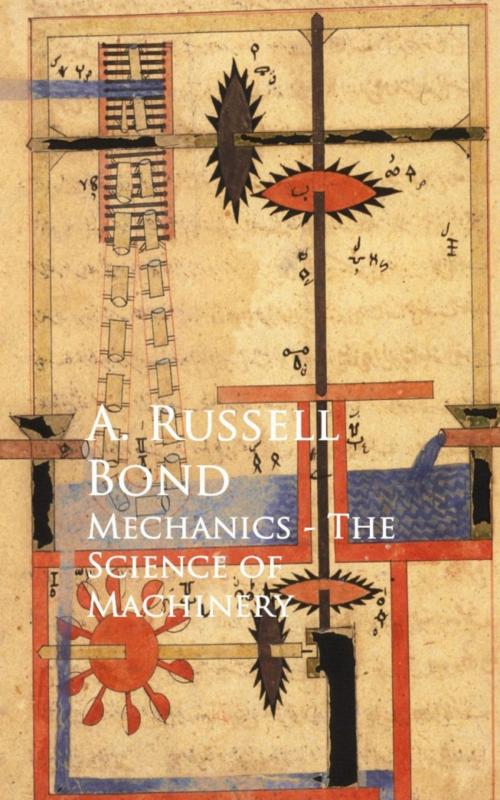| Author: | A. Russell Bond | ISBN: | 9783736406575 |
| Publisher: | anboco | Publication: | August 27, 2016 |
| Imprint: | Language: | English |
| Author: | A. Russell Bond |
| ISBN: | 9783736406575 |
| Publisher: | anboco |
| Publication: | August 27, 2016 |
| Imprint: | |
| Language: | English |
Although strictly speaking the term "Mechanics" applies to that branch of Physics that deals with the actions of forces on material bodies, originally the word had a broader meaning embracing all machinery and mechanical inventions. To-day popular usage is restoring to the term its original broad interpretation, and it is in this popular but rather unorthodox sense that "Mechanics" has been chosen as the title of this book; for although certain elementary principles of mechanics are described and explained, the major portion of the book deals with machines and their evolution to their present stage of perfection. Machines are man's creation, and yet in a sense the man of to-day is a machine product; for modern civilization owes its material and in large measure its esthetic development to machinery. The story of machinery, from primitive man's first attempts to augment his physical powers with mechanical aids down to the present era of gigantic, steel-muscled machinery and marvelously intricate mechanisms, is the story of human progress. It is this story that we have endeavored to tell in the following pages, but the subject is too large to be covered in a single volume or even a dozen volumes. Under the circumstances we have been obliged to confine ourselves to a mere outline, selecting certain avenues of progress more marked than others and presenting brief sketch maps of them. We have aimed[4] in this way to give a bird's-eye view of the whole story of human progress in things material. The book has not been written for the mechanical engineer, but for the layman who would learn of the mechanical contrivances that contribute to his material welfare; hence technical terms have been avoided, as far as possible, and where unavoidable have been explained and defined. A. Russell Bond
Although strictly speaking the term "Mechanics" applies to that branch of Physics that deals with the actions of forces on material bodies, originally the word had a broader meaning embracing all machinery and mechanical inventions. To-day popular usage is restoring to the term its original broad interpretation, and it is in this popular but rather unorthodox sense that "Mechanics" has been chosen as the title of this book; for although certain elementary principles of mechanics are described and explained, the major portion of the book deals with machines and their evolution to their present stage of perfection. Machines are man's creation, and yet in a sense the man of to-day is a machine product; for modern civilization owes its material and in large measure its esthetic development to machinery. The story of machinery, from primitive man's first attempts to augment his physical powers with mechanical aids down to the present era of gigantic, steel-muscled machinery and marvelously intricate mechanisms, is the story of human progress. It is this story that we have endeavored to tell in the following pages, but the subject is too large to be covered in a single volume or even a dozen volumes. Under the circumstances we have been obliged to confine ourselves to a mere outline, selecting certain avenues of progress more marked than others and presenting brief sketch maps of them. We have aimed[4] in this way to give a bird's-eye view of the whole story of human progress in things material. The book has not been written for the mechanical engineer, but for the layman who would learn of the mechanical contrivances that contribute to his material welfare; hence technical terms have been avoided, as far as possible, and where unavoidable have been explained and defined. A. Russell Bond















